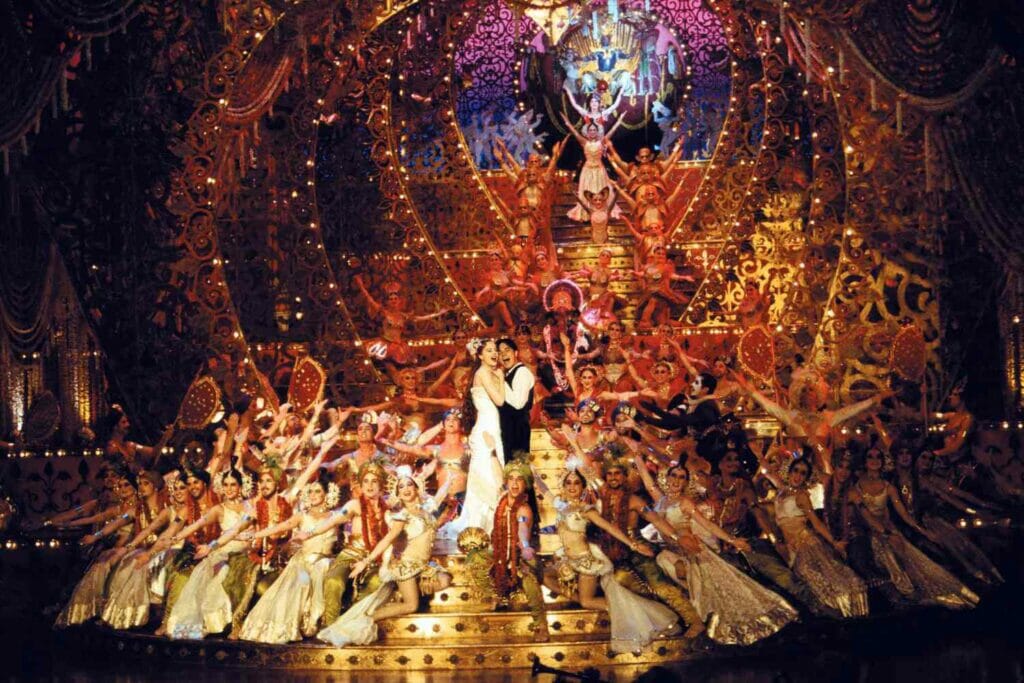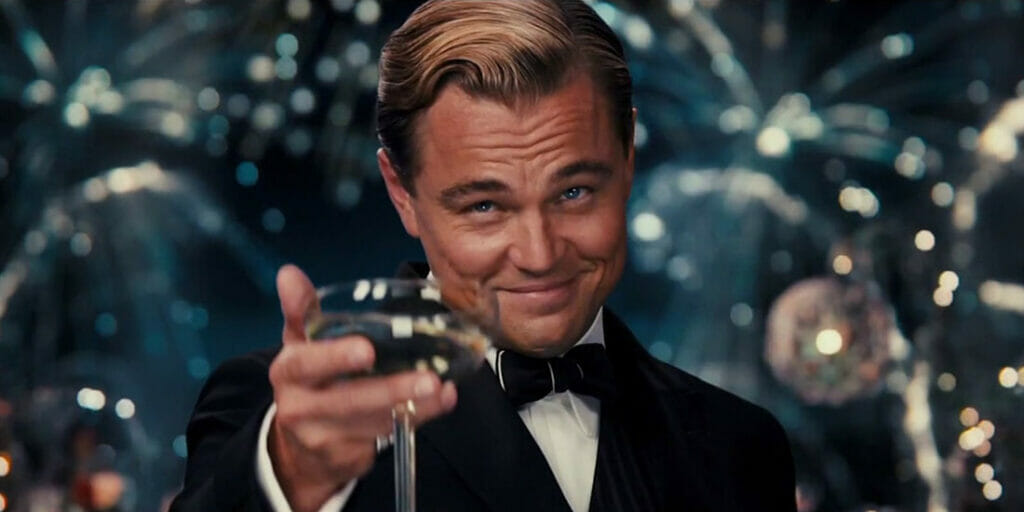Read also:
How to Watch FX Live Without CableHow To Watch AMC Without CableHow to Watch ABC Without CableHow to Watch Paramount Network Without CableEven when he’s not making musical movies, the Aussie auteur’s movies are always musical.

Every month, The Spool chooses to highlight a filmmaker whose works have made a distinct mark on the cinematic landscape.
Baz Luhrmann’s films are, to coin a phrase, not for everyone. They’re loud, brash, and visually overwhelming. Maybe that’s why the director, despite being a wee Australian man, felt like such a natural fit for an Elvis Presley biopic. One could even argue that Elvis, the story of an artist who appropriates music from others to great acclaim, is the perfect culmination of Luhrmann’s career so far. His films are so dazzling to look at that it’s easy to look past his unique talent with music. In fact, he’s a musician in his own right; he released an album in 1998. By rearranging and re-contextualizing songs by hit musical artists in his films, Luhrmann cleverly plays upon the audience’s pre-existing pop culture associations to advance his stories’ plots and deepen their messages.
Luhrmann’s debut film Strictly Ballroom (1992) has a robust soundtrack, and would later be adapted into a stage musical of the same name. Still, the dance-centric romance uses pop songs in a more traditional way than the Bazmark films that would follow. Luhrmann’s follow-up, the divisive Shakespeare adaptation Romeo + Juliet (1996), begins to give us a better idea of how the director likes to play with music, even to the point of butting up against pre-existing dramatic conventions and audience expectations. After the quick cuts of a music video-esque televised prologue, the film roars into action with the rowdy Montague gang members singing the Shakespearean line “I am a pretty piece of flesh” along with alternative band One Inch Punch. Drama teachers everywhere, cover your ears: Luhrmann does not care about maintaining the Bard’s iambic pentameter!
However, Romeo + Juliet has become an icon of high school English classes everywhere for a reason. From the raucous, abrasive opening moments on, the film is willing to try anything to hold the audience’s attention, and it mostly succeeds. Who could resist Harold Perrineau’s Mercutio lip-synching to Kym Mazelle’s “Young Hearts Run Free”? Mercutio’s disco-infused drag number is more than an eye-catching set piece, though. Not only does it underline the charisma inherent to the character, it smartly taps into the queer undertones of Mercutio’s devotion to Romeo (Leonardo DiCaprio), using visual markers that modern audiences will tuck away for later scenes, even if they don’t realize it. Indeed, this single, somewhat silly performance reveals that Luhrmann has as deep and nuanced a take on Mercutio as any Shakespeare scholar.
There are dozens of other memorable musical moments in Romeo + Juliet, from the titular lovers spotting each other through the fish tank while Des’ree sings “I’m Kissing You” at the party below them, to the final fadeout into Radiohead’s “Exit Music (For a Film),” which was composed for the movie, securing the soundtrack’s cool kid cred. However, perhaps the most subtly subversive arrangement Luhrmann uses in the film is a cover of Prince’s “When Doves Cry,” sung entirely by Catholic choir boys. Performed during the young couple’s secret wedding, the contrast between the young boys’ clear, innocent voices and Prince’s more complicated, erotic lyrics is a fascinating echo of Romeo and Juliet’s relationship itself. Their love is pure and their intentions are good, but they’re also completely governed by their hormones. The whole hasty ceremony is just an excuse to have sex.

Luhrmann’s next work, the jukebox musical extravaganza Moulin Rouge! (2001), would push his signature style even further. It’s clear that the director was deeply passionate about every wacky choice in this eye-popping movie, conceiving the story to fit the songs he wanted to use as much as the other way around. It famously took him two and half years to secure all the rights to the music used in the film, and a few songs are second choices. The gamble paid off, though; Moulin Rouge! ended up being so popular that it arguably changed movie musicals forever, inspiring a legion of pale imitators. (Looking at you, The Greatest Showman.)
The problem with wannabe Moulin Rouge! musicals is that they just don’t have what Luhrmann brings to the table, which is sheer audacity. Moulin Rouge! combines so many disparate styles, including everything from The Sound of Music’s title number to “Smells Like Teen Spirit” by Nirvana. It shouldn’t work, and yet it somehow does. The music of David Bowie, including eerie covers of “Nature Boy” and “Diamond Dogs,” serves as a grounding motif that runs throughout the entire film. The “Bohemia” of turn-of-the-century Paris may have been totally unfamiliar to most American audiences, but Bowie is a different matter entirely. Bowie’s gender-nonconforming stage persona and revolutionary musical style were (and still are!) markers that can easily be understood as countercultural by the average person. It’s not a one-to-one historically accurate translation of what Bohemian culture meant to French people in 1900. Still, it’s an evocative modern equivalent that helps pull the audience into the world of the story.
Moulin Rouge!’s piece de resistance is, of course, the jaw-dropping “Elephant Love Medley,” which combines no less than twelve classic love songs into a single ballad. It’s a fun and playful song that zooms by so fast, there’s hardly time to recognize each of the famous tunes, let alone register them as individual pieces. In this way, “Elephant Love Medley” is like an encapsulation of Luhrmann’s film soundtracks unto itself. When everything is working at top form, you don’t even realize that these songs weren’t created just for his movies.
Perhaps the perfect example of a repurposed pop song is “El Tango de Roxanne,” which reimagines the Police’s hit “Roxanne” as an Argentinian tango. It’s almost hard to believe that the song didn’t begin as a South American folk story about a sex worker and her jealous lover. Besides providing the backdrop for a truly jaw-dropping dance number, this new version of “Roxanne” subtly unsettles the audience by drawing attention to the upbeat song’s surprisingly dark lyrics. It helps create a mood of uncertainty and suspicion, ratcheting up the tension as the scene hurtles toward a violent conclusion. If only a fraction of jukebox musical song choices could be this purposeful. Even the Moulin Rouge! stage musical, which Luhrmann did not write, would eventually end up betraying its predecessor’s vision, abandoning thoughtful, unique selections in favor of jamming in as many name-brand hits as possible.
The less said about 2008’s Australia, a dull historical epic, the better. It was 2013’s The Great Gatsby that felt like a true return to form for Luhrmann. From the moment the trailer burst onto the scene, boasting songs like “No Church in the Wild” by Jay-Z and Kanye West and a Beyoncé cover of Amy Winehouse’s “Back to Black,” Luhrmann’s vision for the film was crystal clear. He spent two years collaborating with Jay-Z on the soundtrack, which ended up garnering nearly as much attention as the movie itself.

It’s evident that the director wanted to use modern associations with the allure and excitement of hip-hop culture to draw viewers into the feeling of the Roaring ‘20s; in fact, one of the first sights Gatsby’s protagonist, Nick Carraway (Tobey Maguire), marvels at is a luxury sedan full of chic Black socialites being driven by a white chauffeur. Unfortunately, despite Jay-Z’s involvement behind the scenes, Luhrmann’s technique rings somewhat hollow in this instance. The Black partygoers who whiz past the camera in their gorgeous car are all but the most significant non-white characters in the entire movie, save for a nameless bartender who tells Nick that he’s never met Gatsby.
No one is asking for Luhrmann to make The Great Gatsby into a treatise on race— especially since Elvis would later prove his understanding of American racial politics is shallow, at best— but co-opting the music of Black artists to spice up this painfully literal take on the novel feels like a lazy choice, especially for a director who typically pours effort into every detail onscreen. Black artists like Duke Ellington and Josephine Baker defined the Jazz Age, and Luhrmann weaving more Black American culture into the movie would only make his metaphor more coherent and impactful.
Not every musical choice in The Great Gatsby falls quite so flat. Florence + the Machine’s song about Gatsby’s melancholy green light, “Over the Love,” plays only very briefly, echoing through a high-ceilinged lobby. Welch, an English singer known for her witchy stage persona, has an ethereal voice that makes Gatsby’s empty mansion feel even emptier. It’s one of the few moments in this bombastic film that seems to understand the book’s message about decadence failing to give anyone satisfaction or contentment. Luhrmann’s visual style lends itself to glitz and glamor so seamlessly that much of his Gatsby feels like an uncritical advertisement for the characters’ opulent lifestyles.
The master stroke of The Great Gatsby soundtrack is the inclusion of Lana Del Rey, for that reason. Her original number, “Young and Beautiful,” features in the scene where Jay Gatsby (DiCaprio) shows his lost love, Daisy Buchanan (Carey Mulligan), around his estate, and showers her with luxurious silk shirts. Lana Del Rey’s entire body of work plays on preexisting notions of Americana and the American Dream, not unlike Gatsby himself. She sings about feeling nostalgic for a time she wasn’t born into; Gatsby misses a youth he never actually had.
Nearly ten years later, after a brief detour into the world of television that gave us Netflix’s The Get Down, Baz Luhrmann returned to the big screen with Elvis (2022). The script may be straightforward biopic fodder, relating the story of Elvis Presley’s life in a more or less chronological fashion, but the finished film is anything but standard. Luhrmann unleashes every auditory trick in his toolbox, from the moment his famous Bazmark logo sparkles onto the screen over the faint and fading strains of Presley singing “Suspicious Minds.”
Presley’s voice gives way to “Also Sprach Zarathustra,” the tone poem best known for its use in 2001: A Space Odyssey. Luhrmann is telling us in no uncertain terms that he’ll present Elvis’ story in the most epic, larger-than-life style possible. Indeed, it’s perhaps a mark of the director’s background with music that the film is more about Elvis (Austin Butler) as a public persona than a human being.
Elvis as a subject feels like a natural fit for Luhrmann’s musical style. For better or for worse, the King was an artist who made his name blending and adapting styles. Luhrmann’s signature frenetic pace slams us through about twenty-four years of Elvis’ career, giving newcomers a decent sense of how his style evolved over the years. One song blends into the next as scenes fly by, almost as if the music is in conversation with itself.
In a turn of events that could be considered slightly ironic, given Elvis’ history of stealing from Black artists, Doja Cat’s song “Vegas” proved the biggest song on the soundtrack. Though ineligible for Oscar consideration because it remixed elements from “Hound Dog,” which is itself an Elvis cover of a Big Mama Thornton song, “Vegas” holds the far better honor of being one of the songs of Summer 2022. The tune crops up in the movie just as Presley crosses into Memphis’ historically Black Beale Street neighborhood, and it’s hard to describe just how satisfying the perfectly-timed needle drop is if you haven’t already seen the film.
The scene is gorgeously shot, and every single extra is impeccably dressed. It’s easy to immediately understand why Elvis was obsessed with African American culture, and Doja Cat’s sublimely sexy vocals and biting rap verses bring us right into his awestruck perspective as modern viewers. The scene wouldn’t have the same impact without one of the hottest performers of the moment to complete it, which is something Luhrmann understands well. For a sixty-year-old man, he’s remarkably plugged into the zeitgeist.
The Beale Street sequences feel like Luhrmann’s sincere attempt to balance what felt out of step in his Gatsby movie. Yola performs “Hound Dog” as Sister Rosetta Tharpe and Alton Mason brings down the house as Little Richard does “Tutti Fruitti” for an adoring crowd. Curiously, though, Luhrmann makes the choice to leave many of the legendary performers shown, including Little Richard, unnamed in the actual text of the movie. It’s a move that feels bizarrely in line with Presley’s practice of failing to acknowledge the Black artists who influenced him so deeply.
Putting aside Luhrmann’s almost farcical take on Elvis’ role in the Civil Rights Movement, it’s hard to imagine any other director tackling Presley’s body of work as successfully— or at least, with as much gusto. Instead of feeling obligatory, the musical montages that string together years of Elvis’ life are dynamic and thrilling. A montage of Elvis’ chaotic movie career that ends in the sound of gunshots and distorted newscasts stands out as a uniquely Luhrmann touch, as does the sequence where our hero comically unpacks his friends and family members from various cabinets throughout his tour bus, defying the laws of physics to his new wife’s delight. These stylish, memorable choices elevate Elvis from ho-hum biopic awards bait into something truly worth watching. It’s a remarkable film, not least because it manages to make your grandma’s music seem cool again.
Now that he’s conquered gangsters, showgirls, and rock stars, where Luhrmann’s attention will turn next? His influences are many and varied; it’s hard to think of an artist whose music would feel totally out of place in a Luhrmann joint. Though he may not have the deepest perspective on every facet of American culture, his complex understanding of pop culture is a welcome bright spot in the generally uninspiring blockbuster landscape. Say what you will about his movies, but you’ll never mistake them for someone else’s. That’s the Bazmark promise.